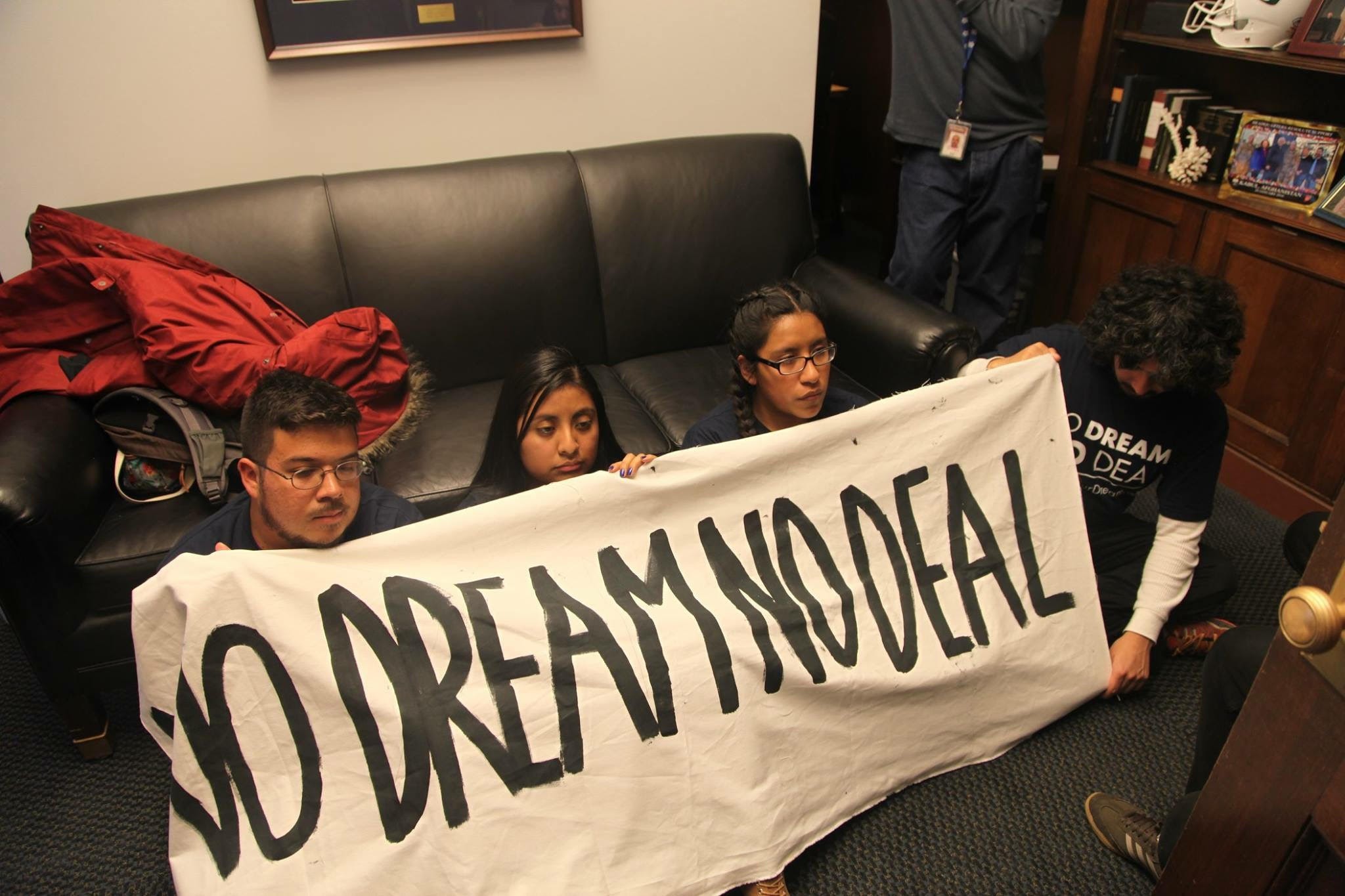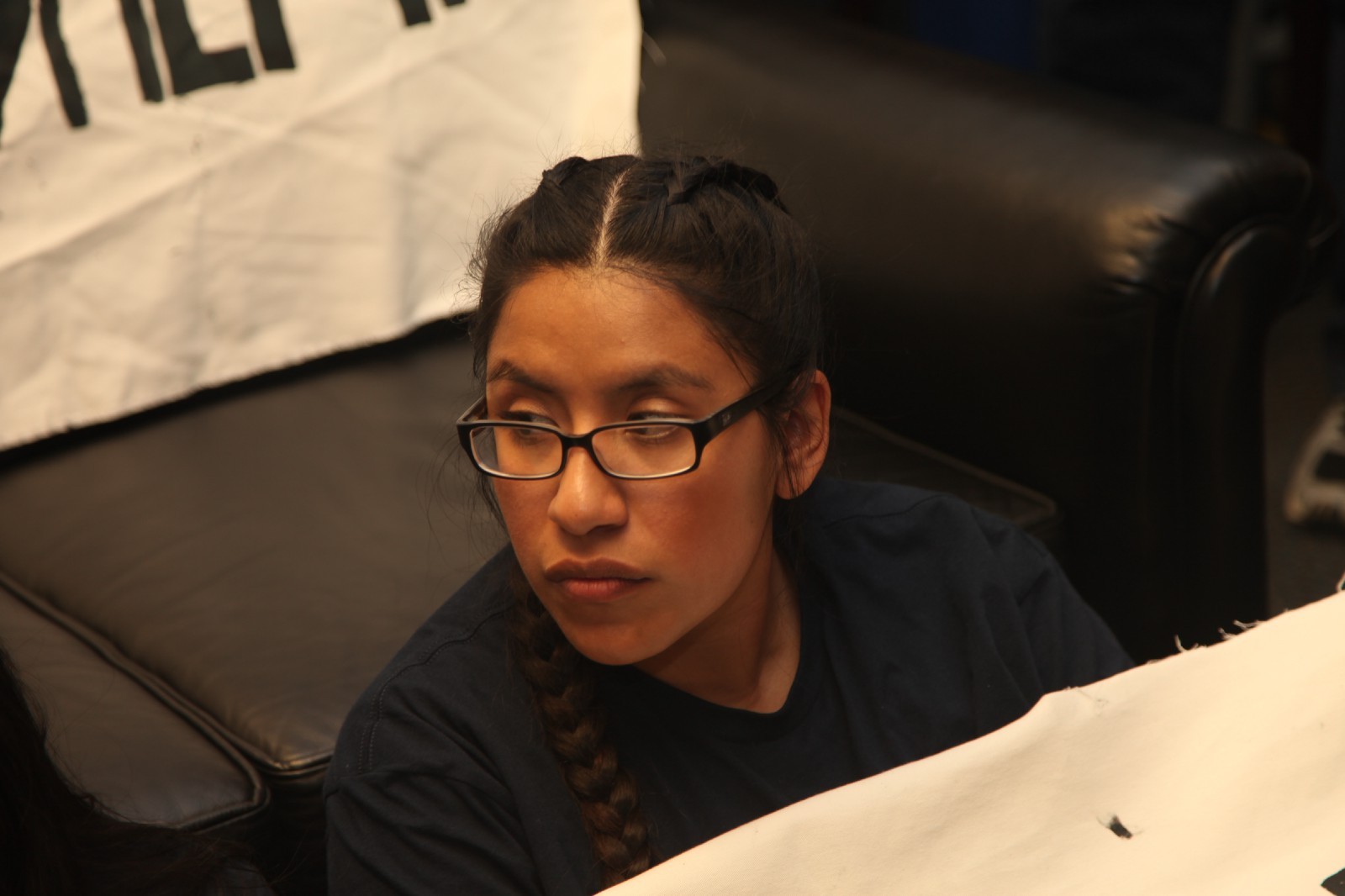 When the Trump Administration decided to phase out the Deferred Action for Childhood Arrivals (DACA) program in September, hundreds protested in the streets of Santa Ana. Barbara Hernandez, a 26-year-old Santa Ana resident and DACA recipient, took the news a little differently by walking off her job. “I went into a panic shock,” she says. “The [government] knew everything about me.” Never having devoted her life to activism before, Hernandez quickly shed the fear and risked deportation as a member of the Dream 7 just last month.
When the Trump Administration decided to phase out the Deferred Action for Childhood Arrivals (DACA) program in September, hundreds protested in the streets of Santa Ana. Barbara Hernandez, a 26-year-old Santa Ana resident and DACA recipient, took the news a little differently by walking off her job. “I went into a panic shock,” she says. “The [government] knew everything about me.” Never having devoted her life to activism before, Hernandez quickly shed the fear and risked deportation as a member of the Dream 7 just last month.
On Dec. 15, seven undocumented activists and an ally staged sit-ins at the offices of Senator Chuck Schumer (D-NY) and Congressman Carlos Curbelo (R-FL). They pledged to get arrested and remain in custody on hunger strike until congress passed a “clean” Dream Act. The activists wanted key lawmakers to withhold votes for a spending bill until their demands were met. “A clean Dream Act wouldn’t criminalize our community,” Hernandez explains. The activists reject any legislation loaded with enforcement-heavy provisions. “I don’t want to get papers at the expense of parents being thrown in jail and be deported because they all sacrificed a lot to come here.”
Hernandez immigrated to Garden Grove from Mexico City almost 20 years ago. “Quieres ir a Disneyland?” her mother asked one day. Being six-years-old, she was more than enthusiastic about visiting the Happiest Place on Earth. Hernandez arrived with her mother in 1999 on a visa that eventually expired. She couldn’t visit her brother when he died in Mexico City years later. “It was so devastating not to say goodbye,” Hernandez says. She later learned her undocumented status is what prevented her from leaving the country. 
Knowing the pain of family separation all too intimately, Hernandez brought those memories into Curbelo’s office that Friday. She networked with Movimiento Cosecha through social media following Trump’s DACA announcement and alerted members of her willingness to take part in the action. The congressman was in Florida at the time, but the activists stayed after 5 p.m., a deadline capitol police gave them to leave before having to arrest them. When that happened, authorities asked the activists for their names. They had a well rehearsed response for that question.
“No disrespect, but I’m only here until congress passes a clean Dream Act.”
The arrested activists, including former Bernie Sanders press secretary Erika Andiola, got transferred to a holding facility next. They spent their first day in custody by starting a hunger strike. US Marshals separated them into individual cells before they moved into a general population prison. “Our goal was to stay in there to bring awareness,” Hernandez says, who capitol police dubbed “Jane Doe 2.” They stuck to their rehearsed “clean Dream Act” script, even when appearing before a judge.
By Tuesday, Hernandez felt sick and started vomiting. That day, three Dream 7 members decided to give their names in order to be released from prison. Hernandez, though feeling weakened from dehydration, stayed with the others until Thursday, the same day congress passed a short-term spending bill to avoid a government shutdown while punting the deadline down to Jan. 19. The remaining activists finally gave their name and left prison.
“It was sad that we didn’t get a clean Dream Act attached to the spending bill,” Hernandez says. Even though the Dream 7 protest didn’t end with demands being met, the fight continues. Last night, a federal judge temporarily blocked Trump’s DACA’s phase out plan. Activists are eyeing a permanent solution through a clean Dream Act while DACA legal battles rage on. The Jan. 19 spending bill deadline is still very much in mind
“Trump might want that wall, but that’s not going to happen,” Hernandez says. “It’s not only about us. It’s about all 11 million immigrants.”

Gabriel San Román is from Anacrime. He’s a journalist, subversive historian and the tallest Mexican in OC. He also once stood falsely accused of writing articles on Turkish politics in exchange for free food from DönerG’s!

